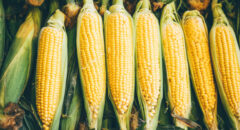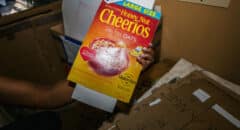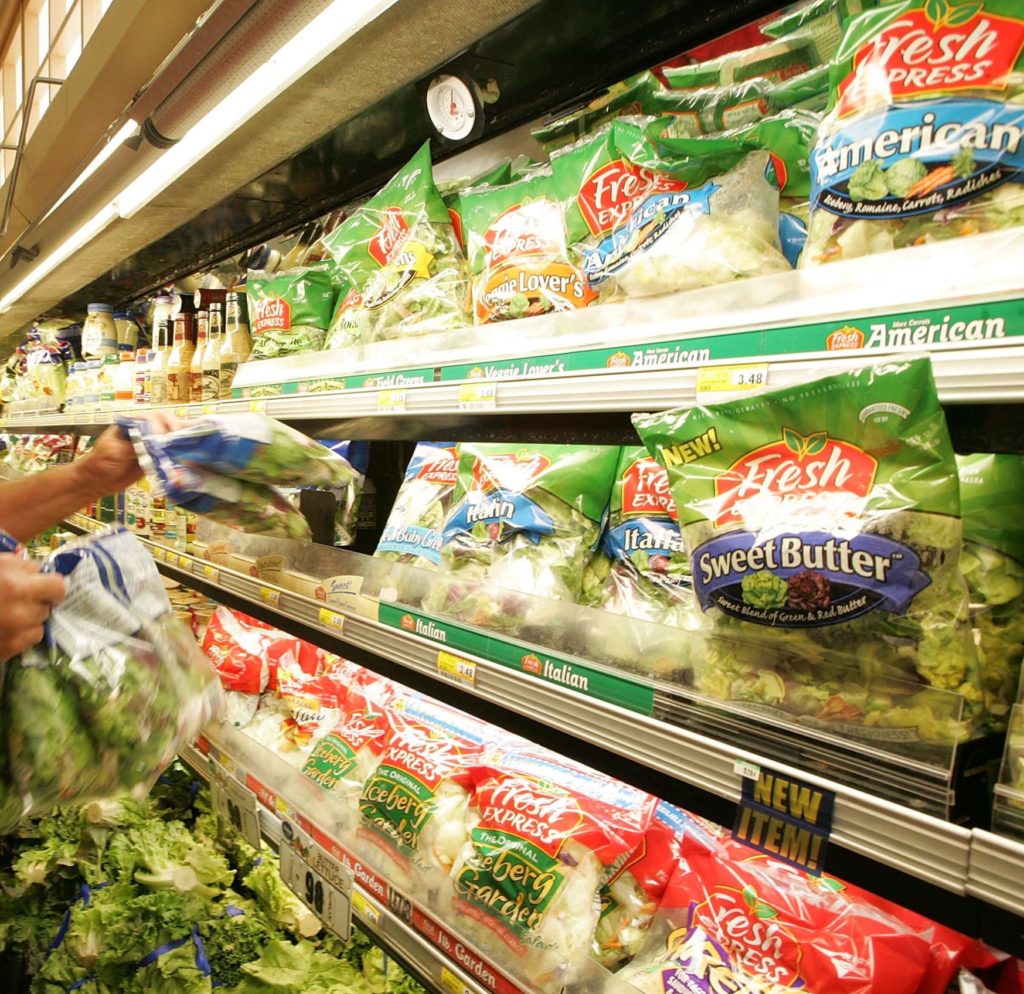
Fresh, ready-to-eat salads save you time and allow you get vegetables quickly, but if you have any of these bagged salads in your refrigerator, please get rid of them immediately.
Dole Fresh Vegetables is recalling bags of garden salad sold in multiple states after a sample tested positive for listeria monocytogenes, an organism that can cause serious and potentially deadly infections.
The recall comes after a sample yielded a positive result for the bacteria in a random test by the Georgia Department of Agriculture.
The pre-washed and ready-to-eat salads contain iceberg lettuce, shredded carrot, and red cabbage. The product is already beyond its October 25, 2021, "best-if-used-by" date and should no longer be on store shelves, according to the notice. Consumers should check their refrigerators for the recalled salads, and throw out those with the specific lot and UPC codes listed below.
The recall includes 12-ounce bags of Kroger Classic Garden Salad sold at Kroger stores in Alabama, Georgia, Kentucky, North Carolina, Ohio, South Carolina, Tennessee, Virginia and West Virginia, the retailer said on its website.
It also includes 24-ounce Dole Garden Salad with lot codes N28205A and N28205B on the upper right corner of the bag and the UPC code 0-71430-01136-2 on the lower left corner of the back of the bag.
As well as, 24-ounce Marketside Classic Salad with lot codes N28205A and N28205B and the UPC code 6-81131-32895-1; 12-ounce Kroger Brand Garden Salad with lot codes N28211A and N28211B and the UPC code 0-11110-91036-3; and 12-ounce Salad Classics Garden Salad with lot codes N28211A and N28211B and the UPC code 6-88267-18443-7.
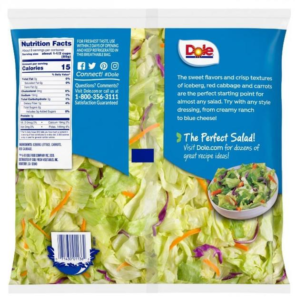
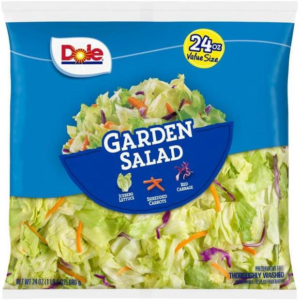
No illnesses have been reported in connection to the recalled garden salad sold in Alabama, Florida, Georgia, Louisiana, Maryland, Massachusetts, North Carolina, Pennsylvania, South Carolina and Virginia, the company said Friday in a recall posted on the Food and Drug Administration website here.
The company noted that it’s working closely with regulatory officials on the issue and that no other products made or sold by Dole are affected by the recall.
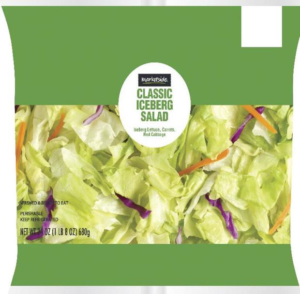
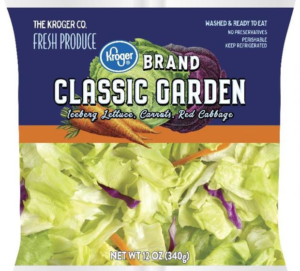
Listeria poisoning can be relatively mild in healthy individuals, causing typical foodborne illness symptoms like fever, stomach pain, and diarrhea, according to the Centers for Disease Control and Prevention (CDC). In fact, mild cases are rarely diagnosed and people usually get better on their own.
However, the infection is a much bigger concern among certain groups of people who are more vulnerable to getting severely sick, including pregnant people and their newborns, adults over age 65, and individuals who have weakened immune systems. These groups are more prone to invasive listeriosis, a serious and potentially life-threatening form of the infection that spreads beyond the digestive system to other areas or systems of the body, like the joints or bloodstream, causing severe illness and complications.
Invasive listeriosis may trigger a fever and muscle aches, as well as symptoms like confusion, stiff neck, loss of balance, and convulsions, according to the CDC. It’s a little different in pregnant individuals, though. While they may only experience mild flu-like symptoms, like fatigue and muscle ache, the illness can cause severe pregnancy complications or life-threatening sickness in fetuses and newborns, the CDC says. Invasive listeriosis typically requires hospitalization and antibiotic treatment.
If you have a bag of salad with one of the affected product names, check for the best if used by date and lot code (located on the upper right corner of the front of the bag), as well as the UPC code (located on the lower-left corner on the back of the bag). The FDA recall notice includes the exact lot codes and UPC codes, as well as photos of the affected products. If you have salads stamped with matching codes, throw them away.




